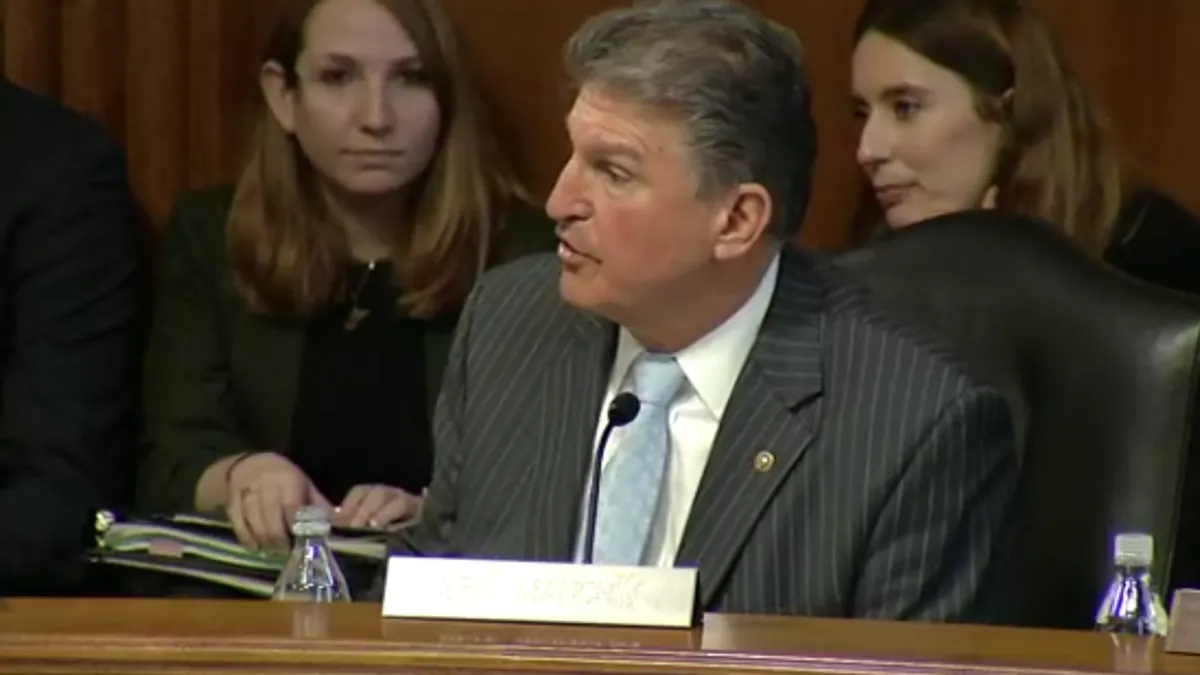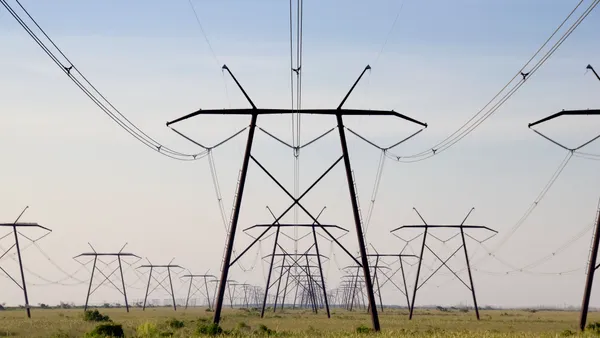Dive Brief:
-
By picking a fight over the size of the next COVID-19 stimulus package, President Joe Biden has reinforced partisan divides and risks straining future conversations about energy, infrastructure and climate, Sen. Joe Manchin, D-W.Va., said during a Thursday webinar hosted by the Bipartisan Policy Center.
-
Fossil-fuel producing communities such as West Virginia feel "like the returning Vietnam vet" — not just left behind, but penalized for having done the "heavy lifting" required for traditional means of energy production, Manchin said.
-
Rather than digging in on controversial measures such as carbon pricing, Democrats should focus on identifying common ground to further progress on climate, Manchin argued.
Dive Insight:
The Energy Act of 2020, passed as part of a broader stimulus package in December, is proof that bipartisan support for needed action on climate and policy is possible, said Manchin. But Biden, he said, has led his administration and Congress awry by insisting on a larger COVID-19 stimulus.
"We started wrong," Manchin said. "Joe Biden's advisors have led him wrong. We should have found something we could vote on bipartisan first, and then go down this road if we hit a roadblock."
Instead of pushing controversial policies, Manchin argued, Democrats should focus on building relationships and finding common ground to make greater progress on goals, such as achieving decarbonization by 2050.
"Let's put everything in perspective," he said. "For everyone to move forward, we have to have everyone in the same mindset."
Manchin suggested adopting framing both parties could support, such as the need for energy independence.
"For us to be the superpower of the world and have the economy and opportunities we have, we have to be self-reliant," he said. "We saw what happened in the 70s. ... We know what can happen if we put all our eggs in one basket."
Manchin said he did not believe Congress would support carbon pricing, noting that Republicans "want to have a conversation about what to do about climate, and to do it in a responsible way, but they want to do it without penalties." He said he personally preferred incentives to penalties as a means for accelerating progress on climate change. The U.S. won't be able to eliminate its way to a cleaner environment, he said — it's going to require technology and innovation to replace conventional industry with new solutions.
He also noted that such policies would penalize communities that have historically relied on fossil fuel production for jobs and income, including West Virginia. The energy transition is happening regardless of politics — "we lost more coal jobs under President Trump than we had previously," he said — and fossil-fuel producing communities already feel left behind despite talk of the need for a "just" transition."
Manchin asked why future incentives for clean energy couldn't include extra incentives for developers who create jobs in these communities.
"Don't you think they'll build you a windmill?" he said. "People want to be able to take care of themselves. They want to be able to provide for their families. That's the driving force."













